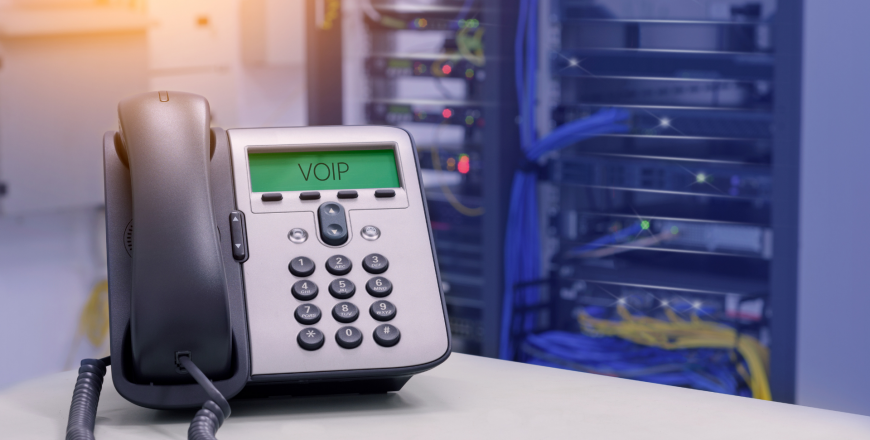Advanced IP Networking for Telecom Professionals

Course Overview
These days, telecom is incomplete without IT. Mobile communications, optical fiber communications, data center, IMS, etc, all depend heavily on IP technologies. Having a good grasp of these topics would certainly lend a competitive edge to telecom professionals. This is a comprehensive IP masterclass covering all the theoretical and practical aspects of IP that a telecom professional needs to know.
The course begins with detailed explanation on IP basics, before progressing in depth and branching out to other modern IP technologies like IPv6, IPv6 networks and deployments, security, IP/MPLS networks, management VPNs etc.
It also covers other modern real-life applications, such as mobile networks/fixed networks, of IP protocols and equipment, as well as the design and operation of these networks. It also includes topics like IP QoS, IP security, network management, MPLS, tunnelling, etc, which are essential for any telecom professional.
Practical hands-on examples will be included for a good understanding of IP. Simulation tools like Packet Tracer and Packet Tracer like Wireshark will be used for live demonstration and exercises so as to enhance the learning experience.
Target Audience
- Chief Technical Officers who wish to have an overall understanding of IP networking technologies and their applications in the Mobile Networks, Satellite Communications, Optical Networks, Wireless Networks, Data Centers and etc.
- Product Managers involved in the launch of IP-based services
- Telecom Sales Professionals who interface with customers to sell IP-based services or solutions
- Procurement professionals who are required to deal with technical specifications in RFPs
- Network Engineers, Designers and Administrators
- Network Managers and Planners
- IT Professionals
- Anyone who wish to learn about the role of IP in Telecommunications
Duration & Training Format
- Classroom: 3 days
- LIVE Virtual: 21 hours
*Note:
- A minimum of 8 or more participants is required for a Classroom session to commence.
- A minimum of 6 or more participants is required for a LIVE Virtual session to commence.
- LIVE Virtual courses can be conducted for 5 hours or 7 hours daily. Please note that the number of training days will be extended if you opt for 5 hours daily.
Upcoming Course Dates
28 – 30 Jul 2025 (Mon – Wed), GMT +8
If you are keen on attending the above scheduled course, please register your interest via our course enquiry form.
Course Objectives
This course provides a comprehensive and indepth understanding of all IP and IP Networking topics that a modern telecom professional needs to know. Upon the completion of this course, participants will be able to:
- Understand Layer 2, Layer 2.5, and Layer 3 concepts in networking
- Comprehend TCP/IP fundamentals and how the TCP/IP protocol suite works
- Demonstrate proficiency in IPv4 and IPv6 protocols, including addressing schemes and subnetting
- Analyze various IP network architectures and their applications in real-world scenarios
- Describe IP-based protocols and routing mechanisms, including dynamic routing protocols
- Explain the basics of IP/MPLS (Multiprotocol Label Switching) and QoS (Quality of Service) for efficient data delivery
- Implement IP Security measures and understand how to safeguard IP networks from potential threats
- Configure and troubleshoot IP networks using Wireshark and other relevant tools for effective network monitoring and debugging
- Apply and operate IP protocols and technologies in both Mobile and Fixed Operator Networks, understanding their distinct requirements and challenges
Course Outline
- TCP/IP Model and Protocols
- Introduction to OSI 7 Layer Architecture
- Standardization and Organizations
- Internetworking Basics
- Network Topologies
- Networking Devices
- TCP/IP Model
- TCP/UDP Protocol
- ICMP Protocol
- ARP/RARP Protocol
- FTP, Telnet, SSH Protocol
- IP Addresses and Subnetting (IPv4 and IPv6)
- IPv4 Packet
- IPv6 Packet
- IP Addressing Basics
- Classes of IP Address
- Reserved IP Addresses
- Subnetting Basics
- Calculation of Hosts and Subnets
- Classless Inter-domain Routing (CIDR)
- IPv6 Deployment Strategies
- Lab Exercise
- Routing Protocols
- Router Basics
- Static and Dynamic Routes
- Routing Tables
- IGP/EGP
- RIP
- IGRP
- OSPF
- BGP
- Lab Exercise
- Domain Name Systems
- Domain Structure
- DNS Resolution
- Distributed DNS and Reverse DNS
- Dynamic DNS
- DNS in Carrier Grade Networks (i.e. Mobile Networks)
- Lab Exercise
- Switching
- Segmentation
- Collision and Broadcast Zone
- STP
- Switching Modes
- Forwarding Tables
- Lab Exercise
- IP-MPLS
- Basic Concepts
- Where and Why it is Used
- MPLS Operation
- Traffic Engineering
- Overview of VPNs
- Layer 3 VPN Architectures and Operation
- Multicast VPNs
- VPWS and VPLS Services
- Inter-provider VPNs
- Layer 2/3 QoS
- RSVP
- MPLS QoS
- DSCP and Diffserv
- Color Coding and Class of Service Marking via VLAN Tag
- Bandwidth Profiles
- CIR, CBS, EIR, EBS, Coupling Flag, etc.
- IP Tunneling
- IP Encapsulation in IP
- Generic Routing Encapsulation (GRE)
- IPSec and Virtual IP for Tunneling
- GPRS Tunneling Protocol (GTP)
- IP Security
- Firewalls and NAT
- Intrusion Detection/Prevention Systems
- DDoS Attacks
- Public Key infrastructures
- Access Control Lists
- IPSec and DNSSec
- Transport Layer Security
- IP Network Management
- Point to Point Protocol
- Dynamic Host Configuration Protocol
- Remote Authentication Dial-In User Service
- SNMP
- DIAMETER
- IP Transit
- What is IP Transit and its Function?
- How is the IP Transit Purchased or Sold?
- MIUs of Submarine and IP Transit
- IP Transit Players Tier-1
- IP Transit Players Tier-2
- IP Transit Players Tier-3
- Peering
- What is Peering?
- Is it a Free IP Transit?
- IP Transport Technologies
- Ethernet/Carrier Ethernet
- WLAN and Packet Wireless/Microwave
- MPLS, GMPLS, MPLS-TP
- Exploring TCP/IP Utilities (Demo)
- Lab Exercise
- Mobile IP for Telecommunication Networks
- Mobile vs IP QoS
- HTTP over Wireless
- IP Multimedia Subsystem (IMS) Fundamentals
- Session Initiation Protocol (SIP)
- Mobile IP Operation in Mobile Networks
- All-IP Mobile Network Architectures (EPC and LTE)
- Synchronization with IP Core (IEEE 1588)
Pre-requisites
Basic knowledge of packet or circuit switching would be beneficial.



